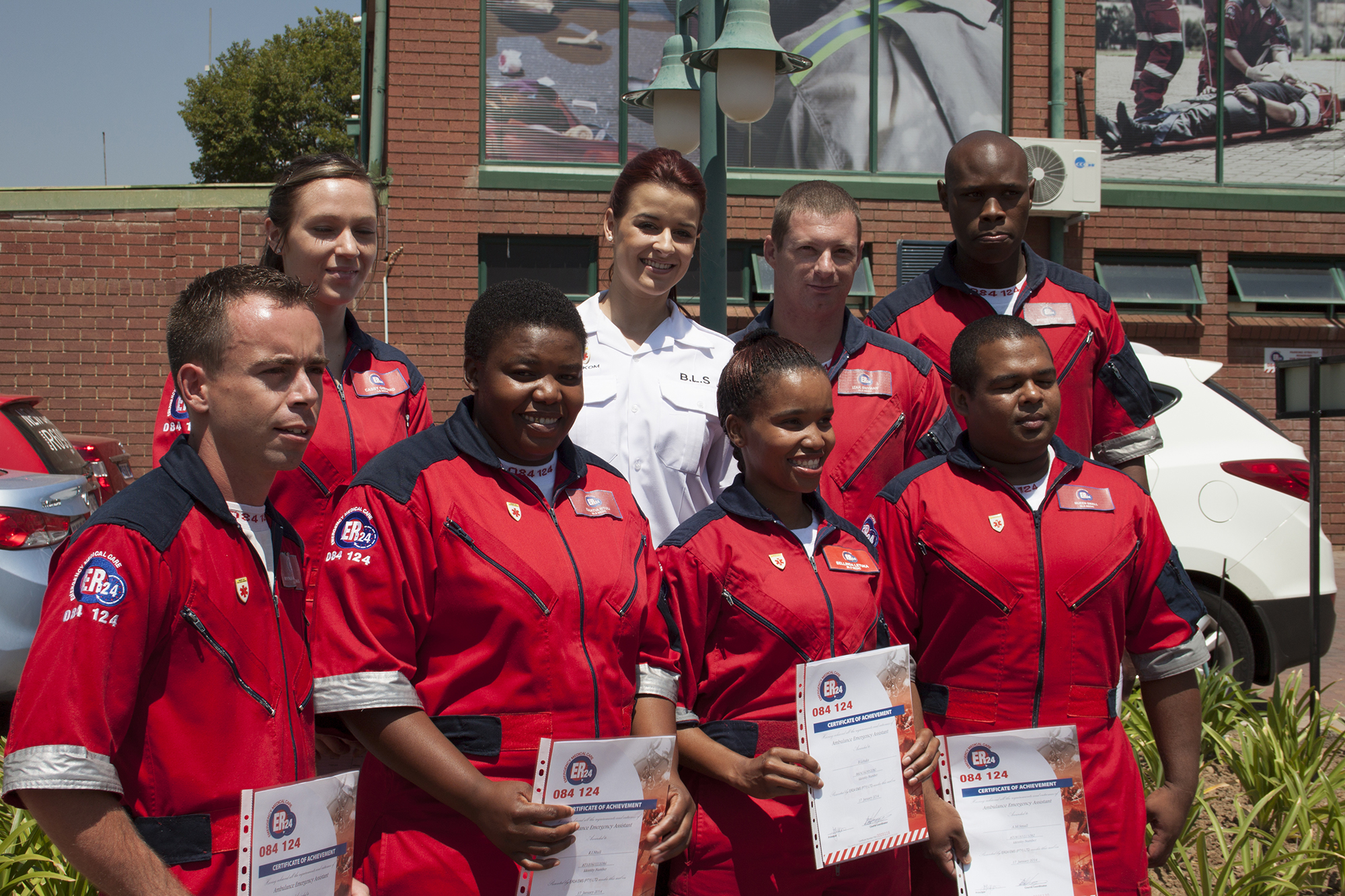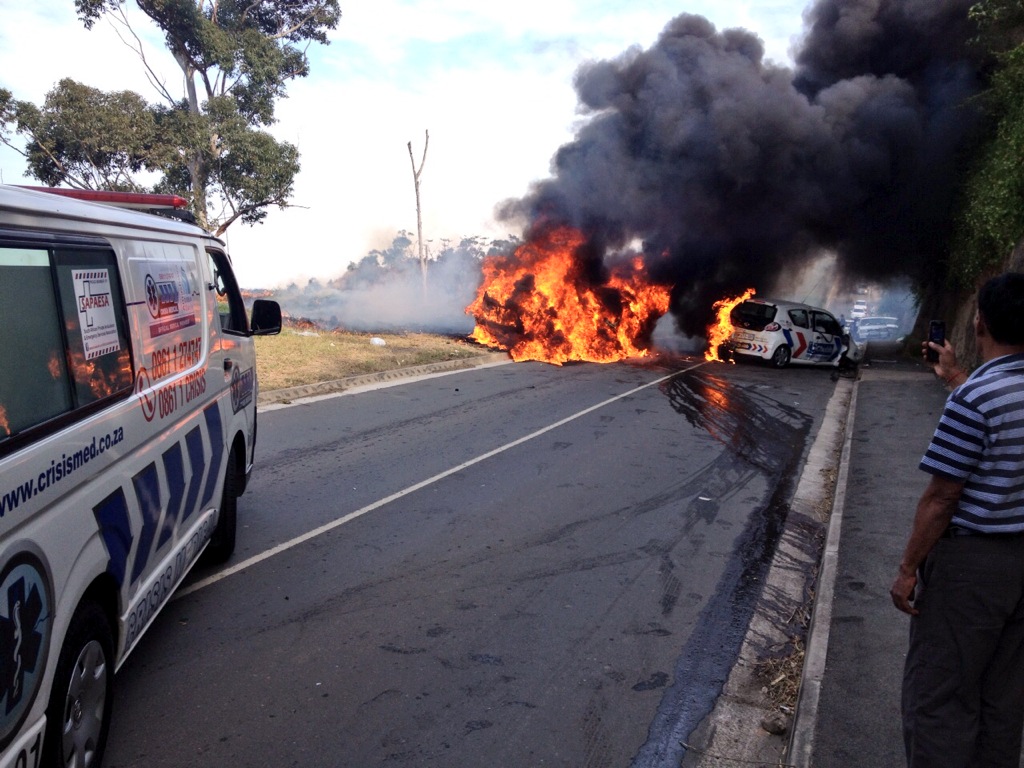10 things you should know about EMS and Ambulance jobs
Are you considering pursuing a medical career, but not quite sure which route to take? You might want to consider ambulance jobs. You can either look at paramedic jobs or look into basic ambulance assistant vacancies. It will require a lot of personal sacrifice, long hours and heavy lifting, but if you are willing to overlook these, then this line of work can actually be one of the most rewarding jobs you will ever have. There is nothing much that beats being able to help others or even save a life.

Here are ten important factors surrounding medical jobs that you should carefully consider before pursuing such a career.
10 things you should know about EMS and Ambulance jobs
1. What will my day entail?
When an emergency occurs, EMS (Emergency Medical Services) and paramedics are dispatched. On the scene of the emergency, the individual will work with police and fire fighters to get the situation under control. The paramedics first assess the patient’s condition and determine whether the patient has any pre-existing medical conditions. Whilst sticking to protocols and procedures, they provide emergency care and transport the patient to a medical facility to be properly treated. It’s the EMS worker’s job to stabilize the patient so they can make it to a proper treatment center. You will also be working with specialist equipment such as stretchers, backboards and oxygen tanks to stabilize patients. You may also be working in a helicopter response unit where you will be operating with a team of paramedics from a response helicopter. Besides this, you will be tasked with transporting patients between medical facilities and also to and from mobile medical units. The scenery is always changing and you are constantly on the move.
2. Work environment
People who work in Ambulance jobs can expect to experience many different working conditions. They are frequently exposed to the same hazards and occupational stresses as firefighters and law enforcement officers. You have to deal with high stress situations with very emotional people, all this while you are trying to save peoples’ lives. You have to work long shifts and often on week-ends and holidays. You will be busiest when everyone else is on the road and having fun, for example during holiday periods. You will also be working with a team of people, so camaraderie is required. Often you will be expected to work under dangerous conditions. You may even be exposed to violence from unruly patients or be harassed by intoxicated individuals. It’s all part of the job.
3. Training and education
There are two routes that you can take if you want to find a career in the medical response field. One is to do a University course and the other is to do a series of short courses.
University Route
Many universities in South Africa offer a four year Bachelor’s degree in Emergency Care (BTech). People who have graduated from this programme are qualified as Advanced Life Support practitioners. They are able to provide the highest level of pre-hospital emergency care and can apply for paramedic jobs.
Entrance requirements and costs may vary according to the education institution that you wish to apply to. The Health Professions Council of South Africa (HPCSA) governs the standards of all medical training in South Africa. If you visit their website you will find a list of all institutions accredited to run Emergency Care training. You can find more information by clicking here.
A two year National Certificate is also available if you don’t want to spend four years in training. This is called the Emergency Care Technician (ECT) course. This specific qualification is also offered by certain institutions, and graduates will work as a basic ambulance assistant under the supervision of a BTech-qualified paramedic.
Short Course route
The other route to follow to pursue paramedic jobs is doing short courses. There are a number of institutions that offer these courses outside of universities. Three courses are available, namely a Basic Ambulance Assistant (BAA) – Basic Life Support, Ambulance Emergency Assistant (AEA) – Intermediate Life Support and Critical Care Assistant (CCA) – Advanced Life Support. The first course will allow you to apply for basic ambulance assistant vacancies. As you progress you will be given an opportunity to work on more complex medical jobs.

4. Career Outlook
Due to the increasing amount of road and public transport users, EMS and paramedic workers are always in demand. This demand will not diminish either, as population estimates are on the rise. There will always be work in this field and there are many opportunities for advancement within the Ambulance jobs sector.
5. Employment
Unfortunately there is a very high staff turn-over rate in this field, mainly due to the stress and nature of the job. Career openings will arise from growth and from the need to replace workers who leave the job. For example, unpaid volunteers will need to be replaced by full-time paid EMS workers and paramedics. You will also be given better positions as your gain experience and qualifications. Paramedics and safety officers are in high demand in the private sector. There are also multiple companies in South Africa that specialize in the medical field. Opportunities such as Netcare vacancies and Medi-clinic jobs are often available.
6. Dangers
EMS and Paramedic personnel are faced with many dangers every time they respond to an emergency. Infectious diseases are an issue, as you will come into contact with many different bodily fluids. Due to the nature of the job, you may come into contact with hazardous chemicals, materials and noises that could lead to hearing loss, physical and psychological stresses. The exertion caused by the carrying and lifting of patients can also take its toll, and many paramedics suffer from back problems and fatigue.

7. What kind of person do I need to be?
First of all, you need to be brave. You will be tasked with walking into dangerous environments on a daily basis. You also need to have a friendly, approachable personality and the desire to help others. This desire to help is the main reason why you would pursue Ambulance jobs.
8. Perks of the job
This job gives you a solid foundation in the medical field. Many doctors and nurses start off as EMS personnel. As you work with a team, you develop close relationships with the people you work with. There are many job opportunities and above all, you get the satisfaction of helping people.
9. Earnings
Your monthly earnings in the career will vary greatly depending on the qualifications you have and the experience you have accrued over the years. It can be anything between R66,000 a year for your basic ambulance assistant vacancies to R263,445 per year for top end safety managers with 20 years of experience in medical jobs.

10. Is this job right for me?
Ask yourself, do I have a burning desire to help people in distress? Remember, you will be working crazy long hours under some pretty bad working conditions. You will also be exposed to sickness, disease and personal harm. But, you will also be working with great people and when you finally get home, you will know that you have helped others. It takes a special person to follow this career, but if you can do it, the rewards are almost indescribable.
PLEASE NOTE: The following video is not suitable for sensitive viewers.
[iframe id=”https://www.youtube-nocookie.com/embed/rC7qH8muCuE” align=”center” maxwidth=”719″]
If we have inspired you to go into this field, then keep a lookout for Ambulance jobs in the Medical jobs section and register your CV on Job Mail today to find the perfect job suited to your skills and experience.







How do I become a volunteer
Your best bet would be to contact our local municipality or ask people who already work in the industry
Wow wow wow. Iam very challenged. I wanna be the part of saving lives. I took a step forward too by doing a BAC course.
I did BAA akso registered with hpcsa I would like to b part of saving lives
You can register you CV on Job Mail here: http://goo.gl/UzlYE0 Once you have done this, search, browse and apply for jobs
I am Nelly and have basis ambulance assistance certificate I love this job
Thats the career a chose I want to be part of this team I am registered with HPCSA
I am lazola ngece i would really like to help people but because of lack of funds i did do basic ambulance course but i will really like to be part of saving lifes
Sorry for that sir i did not do the course but i have code 10 and pdp helping people it what i want to do
I’m Bongeka Hlokhulu i did BAA in 2011 i have code 10 driver’s license i also have pdp i would like to be the part of saving life
willing to work have BAA and licences with PDP.
Yes I have requirements
Then follow the links to the jobs and apply
I am a qualified baa n registered hpcsa n I have licence n PRDP
I am a 26 year old male and I really am keen on being part of the EMS/Paramedic team. I love saving lives and some day my dream will come true
is there any funds provided to study?
You’ll need to find out from persons who are offering positions or from someone who works in the field
I’m 21 years old I have BAA valid registered with HPCSA and drivers c1,I’m interested in working to save peoples life
HI MY NAME IS THANDI I HAVE DONE BAA N I AM LOOKING FOR THE JOB
I HAVE BAA N I AM REGISTERED WITH HPCSA AND I A DRIVERS LICENCE WITH PDP
I have BAA and registered in hpcsa with code 10 with PDP.I also like to volunteer in Garmed in aliwal north easter cape
Hi I want to know that there is any age limit I’m 44 yrs I like to do BAA course I already have code 10 driver’s license
Hi there!
You will have to contact the training providers directly for that type of information.
Good luck!
Hi I have Baa registered with hpcsa with code 10licence with pdp,how do I volunteer?
Hi Tebogo,
You will have to contact the different Emergency Medical Services in and around your area for more information on volunteering.
Greetings I am thembani I need a job of baa I had all documents and are valid. I had 3yrs experience on the road I was voltering at westrand ambulance since 2011 to 2014 June 30.my contacts is 0786733759/0710071783.
Hi there – If you have not registered your CV on Job Mail yet, follow this link: http://goo.gl/EhnxH1. Once you’ve registered, look for Jobs that you need at http://goo.gl/CvYAUa and apply for them! Alternatively, set up a job alert to receive the latest jobs in your field via e-mail at http://goo.gl/eTcGJC. Hope you find employment soon!
Wow…am going for the course and i will be happy to help people, am ready to save life. Bonny.Jennifer here
I have a BAA course and I am registered with HPCSA I also have a license code 10 with PDP and I also have a computer course and I will be happy to save lives
Thank You
Lerato (Eastern Cape)
Hi there – If you have not registered your CV on Job Mail yet, follow this link: http://goo.gl/EhnxH1. Once you’ve registered, look for Jobs that you need at http://goo.gl/CvYAUa and apply for them! Alternatively, set up a job alert to receive the latest jobs in your field via e-mail at http://goo.gl/eTcGJC. Hope you find employment soon!
HI MY NAME IS SANA I DO HAVE A BLS QUALIFICATION AND NO EXPERIENCE BUT KEEN TO LEARN,I HAVE A DRIVERS LICENSE REGISTERED WITH HPCSA WILLING TO RELOCATE,EVEN VOLUNTEERING IS FINE.
Hi there – If you have not registered your CV on Job Mail yet, follow this link: http://goo.gl/EhnxH1. Once you’ve registered, look for Jobs that you need at http://goo.gl/CvYAUa and apply for them! Alternatively, set up a job alert to receive the latest jobs in your field via e-mail at http://goo.gl/eTcGJC. Hope you find employment soon!
Did work in the medical veld and like to do it a gane
Hi Johan,
If you have not registered your CV on Job Mail yet, follow this link: http://goo.gl/EhnxH1.
Once you’ve registered, look for jobs that suit your skill set at http://goo.gl/CvYAUa and apply for them!
Alternatively, set up a job alert to receive the latest jobs in your field via email at http://goo.gl/eTcGJC.
We hope you find employment soon!